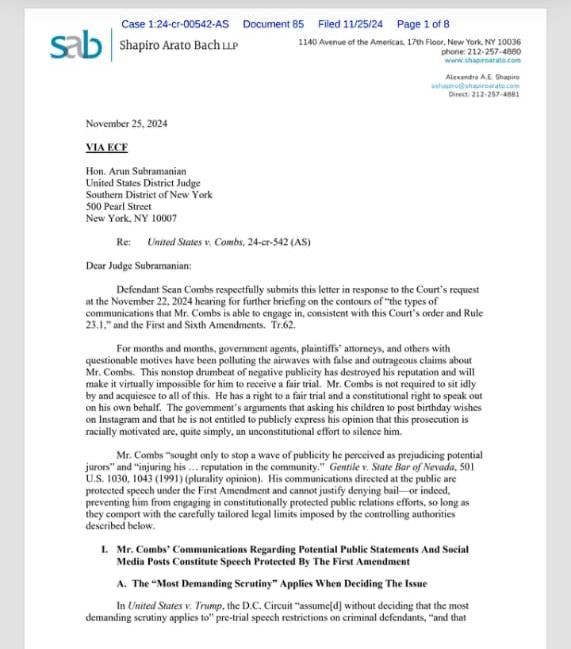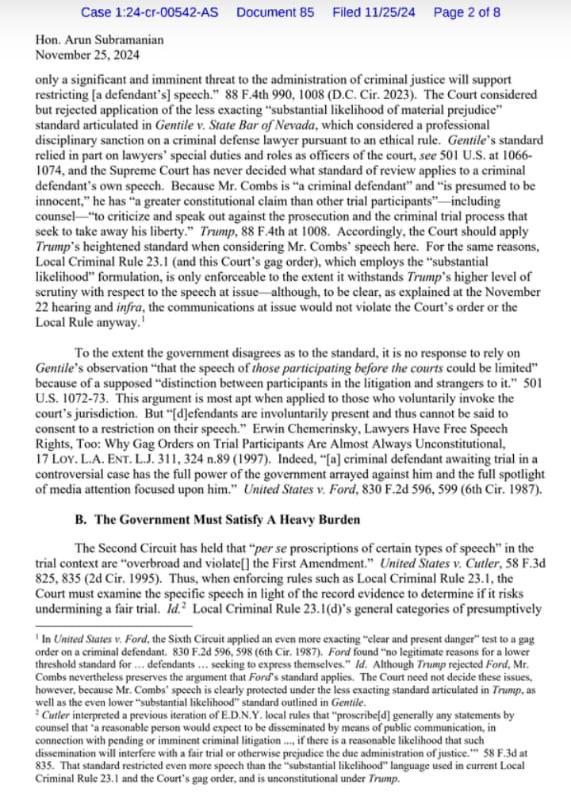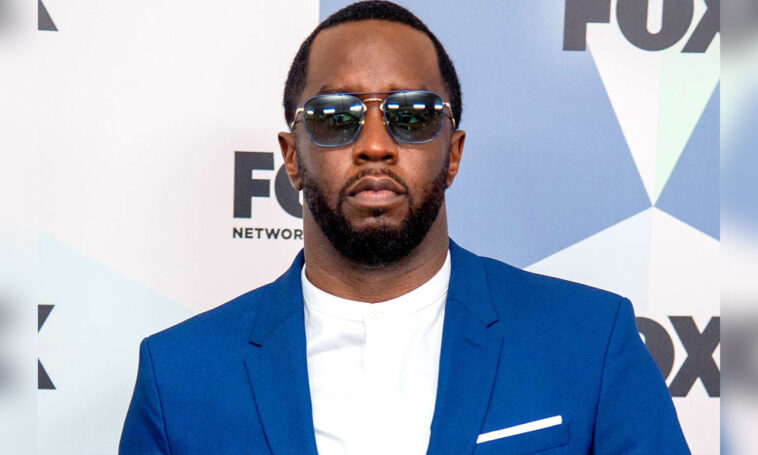In a bold legal maneuver, Sean “Diddy” Combs is seeking to strengthen his case for an early bail release ahead of his upcoming trial citing none other than former President elect Donald Trump. Combs, who is currently facing serious federal charges related to sex trafficking, hopes to use Trump’s own legal history as a cornerstone in his fight to maintain his constitutional rights to free speech and avoid what he believes is undue judicial interference in his case.
As Combs presses for his release, his defense team has specifically pointed to Trump’s high-profile legal battles, particularly a case involving allegations of election interference. In a filing submitted on Monday, Combs’ lawyers invoked an appellate ruling from the U.S. Court of Appeals for the District of Columbia, which laid out a critical argument in favor of broad First Amendment protections for criminal defendants. This decision was particularly relevant to Combs’ case, as prosecutors have accused him of attempting to influence prospective jurors in his ongoing sex trafficking trial through a public relations campaign conducted from jail.
Combs’ defense team argues that just like Trump, he is entitled to use his voice and public platform to defend himself and criticize the legal proceedings against him. The legal brief specifically references a key part of the DC Circuit’s ruling, which affirmed that only “a significant and imminent threat to the administration of criminal justice” would justify restricting the speech of criminal defendants. This assertion, made in December 2023, aligns with Combs’ own situation and supports his defense that the government is unfairly limiting his right to speak out while under indictment.
The legal brief stresses that Combs, like Trump, is presumed innocent until proven guilty. This principle, according to his lawyers, grants Combs an even greater constitutional right than other participants in the trial process including his own attorneys to publicly express dissatisfaction with the charges and legal process against him. The defense contends that, in the same way that Trump was allowed to speak freely during his legal proceedings, Combs should also be afforded the opportunity to use his public platform to criticize the prosecution and any actions that he believes may be an attempt to deprive him of his liberty.
“Accordingly, the Court should apply Trump’s heightened standard when considering Mr. Combs’ speech here,” the filing adds.
To support this position, Combs’ lawyers have called for the court to adopt a “heightened standard” for evaluating his public speech, similar to the one applied in the Trump case. They argue that any restriction on his communications whether verbal or through social media must meet a much higher threshold, one that would need to prove an imminent threat to the judicial process before it could be curtailed.
This argument comes in direct response to recent concerns raised by U.S. District Court Judge Arun Subramanian, who last week requested that both the prosecution and the defense explain why Combs’ public statements, particularly those made while incarcerated, should or should not be considered a form of obstruction of justice. Prosecutors have previously accused Combs of orchestrating a public relations campaign from his Brooklyn detention facility, where he is currently awaiting trial on May 5.


In their filing, prosecutors pointed to a specific incident in which Combs allegedly arranged for family members to create an Instagram post supporting him as he celebrated his 55th birthday. The post, they claim, was organized using a messaging app, ContactMeASAP.com, which is prohibited by the Bureau of Prisons. Prosecutors argue that this was part of an effort to influence public opinion and potentially sway jurors ahead of the trial.
Despite these accusations, Combs’ legal team maintains that his actions were in no way intended to interfere with the judicial process. Instead, they argue that his communications were merely an extension of his rights as a defendant and as a public figure. The ongoing legal back-and-forth, which centers on questions of free speech versus the potential for jury tampering or obstruction, will likely have significant implications for the broader scope of defendants’ rights in high-profile criminal cases.
As Combs’ legal battle unfolds, it remains to be seen whether his comparison to Trump’s legal circumstances will succeed in swaying the court’s opinion. However, it is clear that the rap mogul and his defense team are willing to go to great lengths to ensure that his voice is heard—both in the courtroom and in the public sphere—during the coming months as he faces one of the most critical moments of his career.






Join the Community and Be a Part of the Conversation
You must be logged in or registered to post a comment.